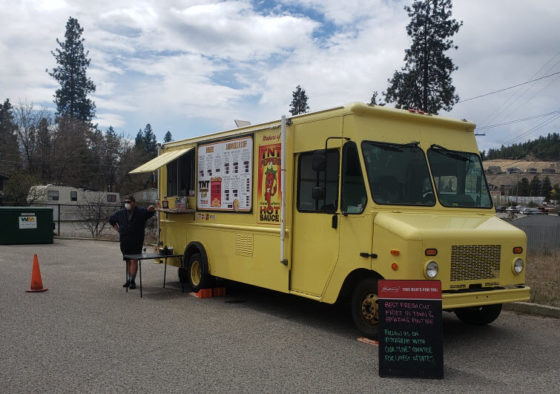Organizations and individuals are coming together to support the “Highway Heroes” delivering the essential goods we rely on during the COVID-19 pandemic.
Please take a moment to think about how much we rely on commercial truck drivers — especially during the COVID-19 pandemic as they deliver our groceries, medical supplies, and so much more.
But truck drivers’ jobs have gotten tougher as more and more businesses along their routes have shut down. With so many businesses closed, it’s been hard for drivers to get food at their usual places. In response, a group of B.C. business owners and the BC Trucking Association (BCTA) launched the Meals for Truckers program on April 20. Its goal is to ensure that commercial truck drivers have the resources and support they need to continue doing their jobs. The program points drivers to food truck locations where they can pick up a meal, as well as find restroom facilities, truck-friendly hotels and motels, and other resources.
I spoke with Dave Earle, president of the BCTA, who described how successful the program has been.
“When you think about where we are today, compared to the problems we were having in the first two weeks, when drivers were unable to find food anywhere, it’s been absolutely remarkable,” Dave says, adding that the vast majority of the meals have been at no charge to truckers.
A number of corporate sponsors have stepped in and paid food truck owners to fund meals. So have private individuals. (See sponsorship opportunities for more information if you’re interested.)
Not only does this service benefit truck drivers, it’s also good for food truck operators. Many are looking for new opportunities after losing business from cancelled festivals and events.
Says Dave: “They’re the smallest of small businesses and we have so many of them throughout the province. Now they can sign up on our website and we’ll work to find them a site. We want to help them get involved.”
Keeping truck drivers safe as well as fed
In addition to feeding drivers, industry has been brainstorming ways to protect them, since they can potentially encounter a lot of people. Using electronic signatures and other virtual technologies are among the solutions for minimizing contact between truck drivers and workers at companies when products are picked up and dropped off.
“We have been getting the industry together to come up with some best practices and solutions to solve the day-to-day issues that have come about as a result of COVID-19,” says Suki Singh, a transportation OHS consultant with WorkSafeBC. “Drivers need simple protocols on how to reduce touch points, keep them safe, and make things easier.”
Suki worked with the BCTA and SafetyDriven to create the COVID-19 Safe Drivers Communication Tools Package. It offers resources for helping trucking companies and their customers communicate about their new safety protocols and processes.
“It’s been tough but the industry has come together to try to help in as many ways as they can,” says Suki, describing the growing support he has seen in communities throughout the province. “I think it’s good how humanity seems to have come to the forefront again. People are saying: ‘You know what? I’m in a difficult spot, so is somebody else. What can I do to help?’”
Learn more about individual Highway Heroes honoured on the Meals for Truckers website, and nominate your own Highway Hero in your family or community.
Source: https://speakingofsafety.ca/